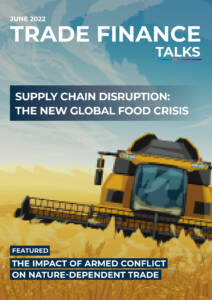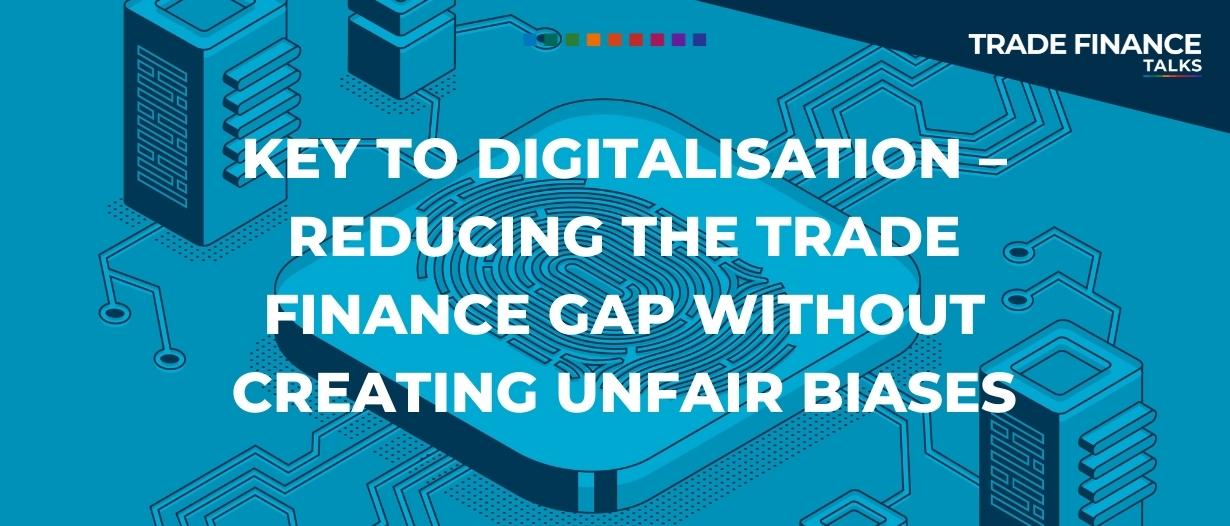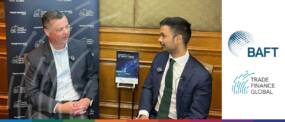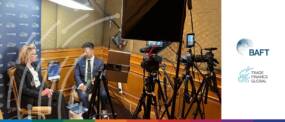Female-owned export companies are being unfairly excluded from receiving trade finance loans, and more needs to be done to remove gender bias from the decision-making process, according to experts at this year’s World Trade Symposium.
TFG’s Deepesh Patel spoke to Simon Paris and Iain MacLennan of Finastra about the global trade finance ecosystem and what can be done to close the $1.7 trillion trade finance gap and get the system moving again post-COVID.
Macroeconomic highlights and lowlights
According to the UN’s Inter-agency Taskforce on Financing for Development, the importance of short-term finance to support global trade, known as ‘trade finance’, needs to be recognised as an essential development tool that oils the wheels of global trade and supports the growth of small businesses, particularly in developing economies, where it facilitates access to global markets and value chains.
Currently, global supply chains are being put under a lot of strain due to macroeconomic events like the Russia-Ukraine conflict and fresh COVID lockdowns in China, all of which are leading to distribution issues, product shortages, and higher inflation.
In developing countries such as Africa and Asia, where a large proportion of GDP is generated by MSMEs, the problem is compounded by a growing trade finance gap that makes it difficult for local businesses wanting to export their goods and services.
Despite this, the trade financing gap appears to be widening: reports indicate that in 2021 it increased by a further 15%.
A recent McKinsey report revealed that there are currently between 50 and 65 million capital-constrained SMEs around the world that are experiencing high rejection rates:
“These issues are particularly challenging for the micro, small, and medium-sized enterprises (MSMEs) that play an increasingly important role in global trade, with financing rejection rates for such businesses at 40%,” the report says.
This is especially true for the so-called unbanked – people who do not have access to traditional banking services.

Women-owned businesses hit hardest
For female-owned businesses, the figure is even higher: the IFC estimates that for women-backed entrepreneurs or SMEs, the rejection rate for trade and business loans is as high as 70%.
Although digitisation was largely seen as a remedy for lack of financing access, some experts think that this may have led to teething problems.
Simon Paris, CEO of Finastra, thinks that this may stem from algorithmic biases within the automated loan vetting systems set up to handle loan requests by financial institutions during COVID.
“Through our technology, we need to make sure that there’s no bias,” Paris said.
“It shouldn’t be that women are 70% penalized when the average is 50%; it’s a bias in the process.”
According to Iain MacLennan, VP of Finastra, part of the problem may be the speed with which these institutions have had to adapt to remote working and adopt digital solutions for financial services like business loan applications.
“We talked to banks across the world and in the space of a couple of days, they went from having all of their staff in the office to all of their staff working remotely and all their customers being remote as well,” MacLennan said.
“What we saw was a major push on digitization meaning that for many heads of trade services, the problem was getting physical signatures and moving documents.
“While we see mainstream adoption of digitisation by both institutions and customers, the real question is how do we bring those various networks and solutions together in a way that works for everyone?”
Resolving this issue will be critical for all participants in the global trade finance system, which accounts for around 6% of total global GDP, but particularly so for women and the unbanked.
McKinsey estimates that an improved global trade finance ecosystem could help to create a significant proportion of the 600 million new jobs needed by 2030 to absorb the growing global workforce, especially in the face of increasing automation, which is removing many low-skilled jobs within sectors such as retail, distribution, and manufacturing.

Action Required
Simon Paris reflects on the collaboration needed to address the issues at hand:
“John Denton, secretary-general of the ICC, sent me a text message saying: ‘This is a dark moment in our lives. We need to move from admiring the problem to actually getting on to resolving the problem collectively.’
“We often argue that collaboration is the new innovation.
“We can’t do it on our own – it requires all of the people in the room and beyond to work together – but speed is going to be of the essence.
“On the topic of standards, another board member sent me a note saying, ‘It comes down to three things: adopt them, promote them, or contribute to them.’
“The overall message however is that we need to act fast.”
This video interview was recorded at World Trade Symposium 2022.
Read the latest issue of Trade Finance Talks, June 2022

 Australia
Australia Hong Kong
Hong Kong Japan
Japan Singapore
Singapore United Arab Emirates
United Arab Emirates United States
United States France
France Germany
Germany Ireland
Ireland Netherlands
Netherlands United Kingdom
United Kingdom














Comments are closed.